What you’ll learn:
- Rybelsus® is the oral form of semaglutide that is taken once daily as a pill to treat type 2 diabetes or for weight loss off-label.
- Like Ozempic®, Rybelsus® has a list price of nearly $1,000, but out-of-pocket costs can vary significantly depending on insurance coverage.
- Manufacturer savings programs and shopping around at different pharmacies can help reduce the out-of-pocket costs for Rybelsus®.
Losing weight and keeping it off can be challenging, but medications can help. The most effective are the GLP-1 receptor agonists, some of which you may have heard of: Ozempic®, Wegovy®, Mounjaro®, and Zepbound®. Rybelsus® is another medication in the same class, developed by Novo Nordisk, the company behind Ozempic® and Wegovy®. It stands out, though, as the only one that can be taken as a daily pill instead of a weekly injection.
Like Ozempic®, Rybelsus® is FDA-approved for treating type-2 diabetes, but it can also be prescribed off-label for weight loss. It has other things in common with Ozempic, too. It also contains the active ingredient semaglutide, which helps to reduce your appetite and slow down food passage, keeping you full longer.
The issue? These medications can be very expensive. They all cost nearly $1,000 per month (or more) without insurance. What you’ll pay out of pocket will vary based on your insurance coverage, available discounts, and even the pharmacy you choose.
We’ll explain how much you can expect to pay in 2025 for Rybelsus®, offer ways to save, and suggest alternative treatments.
What is Rybelsus®?
Rybelsus is the first FDA-approved oral medication containing semaglutide. This was a major turning point for people with diabetes and weight management, opening up new possibilities for treatment.
But how does it work? The semaglutide in Rybelsus® works by mimicking a hormone called GLP-1, a natural regulator of blood sugar and appetite. Taking Rybelsus can do a few things that can help you lose weight:
- Lowers your appetite: You will feel less hungry while taking it.
- Hits the “pause” button on your stomach: Rybelsus slows down how quickly your stomach empties, which means you feel fuller for longer.
- Regulates blood sugar: Rybelsus helps to keep blood sugar levels steady, which can reduce cravings.
This unique combination of effects can lead to weight loss.
How much weight can I lose with Rybelsus®?
In one study, people taking Rybelsus® lost an average of 5 to 8 pounds in six months, depending on the dosage. Of course, everyone’s body is different. You could lose more or less weight depending on factors like your starting weight, lifestyle habits, and the dose you’re prescribed. Combining Rybelsus with a healthy diet and regular exercise will supercharge your results and set you on the path to success.
How much does Rybelsus® cost without insurance?
The monthly list price of Rybelsus® is $998, but what you’ll actually pay depends on your insurance plan, coverage type, and whether you’re using it for diabetes or weight loss. While some insurance plans cover Rybelsus® for type 2 diabetes, weight-loss coverage is rare.
Rx weight loss, the right way, with Noom
Get access to prescription weight loss medication with Noom.When does insurance cover Rybelsus®?
If you’re considering Rybelsus® for weight management, check with your insurance provider. They can help you understand your benefits, potential out-of-pocket costs, and whether you qualify for savings programs. Insurance coverage for Rybelsus® will depend on your specific plan, state regulations, and individual medical needs. Even with coverage, copays, deductibles, and different coverage tiers affect how much you’ll pay out of pocket. Here’s a look at some popular types of insurance:
- Private insurance: Some private insurance plans cover Rybelsus® for type 2 diabetes, but if you’re using it off-label for weight loss, coverage is unlikely. Even for diabetes coverage, insurers will likely require prior authorization and may ask for proof that other cheaper treatments (like metformin) didn’t work before approving Rybelsus®. Even if it is covered, expect higher copays since it’s typically classified as specialty medication. They’ll range from $50–$150 per month.
- Medicare (Part D & Advantage plans): Medicare Part D covers Rybelsus® for type 2 diabetes but not for weight loss. Coverage varies by plan, but 95% of Medicare Part D enrollees have access to Rybelsus®, according to Novo Nordisk. If you qualify for extra assistance due to a lower income, you could pay as little as $10.35 per month. In 2025, the Inflation Reduction Act will cap annual out-of-pocket drug costs at $2,000 for Medicare Part D enrollees, making medications like Rybelsus® more affordable. Plus, Rybelsus® has been selected for the second round of Medicare price negotiations, along with Ozempic® and Wegovy®. While price cuts won’t happen right away, this could mean lower costs for Medicare recipients in the future.
- Medicaid (varies by state): Most state Medicaid programs cover Rybelsus® for diabetes, but coverage for weight loss is rare. Each state sets its own Medicaid policies, so eligibility and coverage details can vary. If you’re considering Rybelsus®, checking with your local Medicaid office is the best way to understand your specific benefits and requirements.
- Veterans Affairs (VA) and other government plans: The VA and TRICARE cover Rybelsus® for type 2 diabetes with prior authorization, but not for weight loss. To check if Rybelsus® is covered under your specific TRICARE plan, visit the TRICARE Search Tool for the most up-to-date coverage details.
What factors affect the cost of Rybelsus®?
If you’re taking Rybelsus®, you’ve probably noticed that prices can vary—a lot. The biggest factor? Insurance coverage. Whether your plan covers Rybelsus® (and at what tier) plays a major role in how much you’ll pay out of pocket. But that’s not the only thing that affects cost. Here are a few other factors to keep in mind:
- Manufacturer pricing: Novo Nordisk sets the price for Rybelsus®, but factors like Medicare price negotiations, insurance changes, and market demand could influence future costs.
- Manufacturer savings programs: Novo Nordisk offers savings cards for eligible people with insurance that can lower out-of-pocket costs. You can check eligibility and apply through Novo Nordisk’s official savings program.
- Location matters: Where you live can impact what you pay. State regulations, pharmacy competition, and local pricing strategies all play a role in medication costs.
Knowing what affects Rybelsus® pricing can help you plan ahead and explore cost-saving options. Whether it’s checking for discounts, comparing pharmacies, or verifying insurance coverage, a little research can go a long way in reducing what you pay.
Tips to reduce Rybelsus® costs with and without insurance
Even with insurance, many people still pay a lot for Rybelsus®, so it’s worth checking for any savings programs and coupons. Here are some of the best ways to save, whether you have coverage or not:
- Use the Rybelsus® Savings Card or manufacturer assistance programs: If you have commercial insurance, you may qualify to pay as little as $10 per month for up to 48 months. If you’re uninsured and meet income requirements, Novo Nordisk’s Patient Assistance Program (PAP) may provide Rybelsus® at no cost for those with type 2 diabetes.
- Compare prices at pharmacies: The price of Rybelsus® varies slightly by pharmacy, so check large retailers, independent pharmacies, and online providers. Some pharmacies price match or accept discount coupons from platforms like GoodRx and SingleCare to help lower costs.
Exploring these options can make Rybelsus® more affordable, whether you’re covered by insurance or paying out of pocket.
Can you get Rybelsus® for free with insurance?
While getting Rybelsus® completely free is rare, savings programs can significantly lower costs. Again, the Rybelsus® Savings Card can reduce the price to as little as $10 per month for eligible people with commercial insurance, with savings lasting up to 48 months. For those without insurance, Novo Nordisk’s Patient Assistance Program (PAP) may provide Rybelsus® at no cost if they meet income and eligibility requirements.
Will the cost of Rybelsus® increase as my dose increases?
The list price for Rybelsus® remains consistent across its available dosages—3 mg, 7 mg, and 14 mg.
How to get a prescription for Rybelsus®
To get a prescription for Rybelsus®, you must see a healthcare provider or complete some information online. Follow these steps to ensure you get the treatment you need:
- Consult a healthcare provider or see if you qualify for Noom Med. Your primary care physician, endocrinologist, or specialist can write a prescription if you qualify for the medication. During your appointment, you’ll discuss overall treatment goals, any pre-existing conditions, current medications, and concerns you have about the medication. You can also visit Noom Med to see if you meet the qualifications guidelines. If so, you’ll be connected with a clinician who can prescribe Rybelsus® or an alternative if necessary.
- Review your eligibility. Your doctor will evaluate your BMI, medical history, and health status to determine if Rybelsus® is the right choice for you. Typically, GLP-1 medications like Rybelsus® are prescribed for people with a BMI of 30 or higher or 27 or higher with weight-related conditions like high blood pressure.
- Discuss insurance and cost concerns. Your provider can help navigate insurance requirements, including obtaining prior authorizations if necessary, and can also suggest available discount programs or patient assistance options.
Who can’t take Rybelsus?
While Rybelsus® can be an effective medication for managing type 2 diabetes, it isn’t right for everyone. Always discuss your complete medical history with your healthcare provider before starting treatment.
You shouldn’t take Rybelsus® if you have:
- A personal or family history of medullary thyroid carcinoma (MTC) – MTC is a rare type of thyroid cancer.
- Multiple endocrine neoplasia syndrome type 2 (MEN 2) – This genetic condition increases the risk of thyroid tumors.
- A history of pancreatitis – Rybelsus® may increase the risk of pancreas inflammation.
- Severe kidney disease – Rybelsus® can lead to dehydration, which may worsen kidney function.
- Severe gastrointestinal issues – If you have gastroparesis (delayed stomach emptying) or other severe digestive conditions, you should not take Rybelsus®.
- Diabetic retinopathy – Like other GLP-1 receptor agonists, Rybelsus® has been linked to worsening diabetic eye disease in some cases.
You also can’t take Rybelsus® if you are:
- Pregnant or planning to become pregnant – Rybelsus® isn’t recommended during pregnancy or while trying to conceive.
- Breastfeeding – Rybelsus® shouldn’t be used while breastfeeding.
Medications that may interact with Rybelsus
Certain medications can interact with Rybelsus®, requiring adjustments or additional monitoring:
- Other diabetes medications (e.g., insulin and sulfonylureas) – These can increase the risk of low blood sugar (hypoglycemia).
- Oral medications – Rybelsus® slows stomach emptying, which may affect the absorption of some oral drugs.
- Medications that slow digestion – These may enhance Rybelsus®‘s effects on the stomach, increasing the risk of nausea or bloating.
Can Rybelsus® be combined with other weight-loss medications?
If you are considering combining Rybelsus® with other weight-loss medications, you should only do so under medical supervision to minimize risks and monitor potential side effects.
For complete details on Rybelsus, visit Novo Nordisk’s official Rybelsus® page. Always consult your healthcare provider before making any medication decisions.
Will I have trouble finding Rybelsus due to shortages?
Currently, there are no reported shortages of Rybelsus. For the most up-to-date information on drug availability, visit the FDA’s Drug Shortages database.
Where to get your Rybelsus® prescription filled
Once you have a prescription for Rybelsus®, choosing the right pharmacy can make a difference in your monthly costs. Since prices for Rybelsus® can vary from one pharmacy to another, it pays to shop around and compare your options.
Below are current price listings from GoodRx to help you get started. Simply enter your zip code to search for the prices at the locations closest to you.
1. Warehouse clubs and supermarkets
Membership-based stores and large retailers often offer competitive prices that can be lower than those at traditional pharmacies. Here are some estimated prices (subject to change):
- Costco: $1,105
- Walmart: $1,043
- Target: $1,007
2. Retail pharmacies and prescription discount programs
Many national and local pharmacies participate in discount programs or accept manufacturer savings cards that can further reduce your out‑of‑pocket expenses. Current estimated prices include:
- CVS: $1,007
- Walgreens: $1,028
- Rite Aid: $996.60
Disclaimer: Prices may change and are accurate as of publication. Actual costs can vary based on your location, dosage, and the specific pharmacy you choose.
Alternatives to Rybelsus®
While Rybelsus® is a convenient, oral option for managing type 2 diabetes and off‑label for weight loss—it isn’t your only choice. Several other medications in the GLP‑1 receptor agonist family, as well as some non‑GLP‑1 options, might work better for you or even cost less.
Semaglutide
Two other brand-name medications contain semaglutide, the active ingredient in Rybelsus®. Rybelsus® is the only oral form, while Ozempic® and Wegovy® are medications you inject once per week. Both are prescribed more often than Rybelsus for weight loss. Here are the options:
- Ozempic® – Ozempic is FDA-approved for type 2 diabetes and is often prescribed off‑label for weight loss. Without insurance, it typically costs about the same as Rybelsus, about $1,000 per month.
- Wegovy® – Wegovy® is FDA-approved for managing weight under the same BMI guidelines as Rybelsus. It can also be prescribed to prevent cardiac events. Without insurance, it’s the most expensive of the three, about $1,349 monthly.
Injectable semaglutide is still more effective than oral semaglutide at the current doses that can be prescribed: 7mg and 14 mg. In clinical trials, people who took higher doses of Rybelsus® than are currently available (25 mg and 50 mg) lost more than 15% of their body weight over 68 weeks, equivalent to injectable semaglutide.
Tirzepatide
Tirzepatide, available as Mounjaro® and Zepbound®, has shown significant weight loss in clinical trials. People taking it lost an average of 21% of their body weight over 72 weeks. Unlike Rybelsus® and other semaglutide medications, which target only GLP-1, tirzepatide activates both GLP-1 and GIP receptors, which may lead to greater weight loss. Here are the available options:
- Zepbound® – This once-weely injected medication is FDA-approved for weight loss for people with the same BMI guidelines as Rybelsus. Its list price is $1,080 per month.
- Mounjaro® – Like Rybelsus, Moujaro® is FDA-approved for type 2 diabetes but can be prescribed off-label for weight loss. It also costs about $1,080 per month without insurance.
Liraglutide
Medications based on liraglutide work on the GLP‑1 receptors like Rybelsus® but require daily injections due to their shorter duration of action. Here’s what you should know:
- Saxenda® – Saxenda® is FDA‑approved for weight loss. Without insurance, its list price is about $1,349 per month.
- Victoza® – Victoza® is FDA‑approved to treat type 2 diabetes and is sometimes prescribed off‑label for weight loss. Its cost ranges between $800 and $1,400 per month.
- Generic liraglutide – Recently approved by the FDA, generic liraglutide offers a potentially more affordable option for type 2 diabetes and off-label weight loss in adults. Prices are around $470 for a pack of two pens and $704 for a pack of three pens.
Dulaglutide
Dulaglutide, sold under the brand name Trulicity®, is taken as a weekly injection and works similarly to injectable semaglutide. Trulicity® is FDA‑approved for type 2 diabetes and is sometimes used off‑label for weight loss. Its list price is approximately $987 per month.
Other weight loss medications to consider
There are several other weight loss medications that could work for you. Here’s a quick rundown:
- Metformin – Metformin is FDA‑approved for diabetes but is often prescribed off‑label for weight loss as well. If you qualify for Noom Med, your clinician can help decide if metformin is right for you. It will cost $59 for the first month and $89 for recurring 3‑month supplies, plus you’ll get access to medical counseling, a coach, and Noom’s trackers and tools.
- Orlistat – Orlistat works by blocking fat absorption. It’s taken three times daily with meals. Depending on the brand and pharmacy, its cost can vary widely, from $50 to $800 per month without insurance.
- Phentermine – Phentermine is an appetite suppressant designed for short‑term use. It’s taken once daily to help reduce hunger. Prices typically range from $27 to $100 per month without insurance.
- Diethylpropion – Diethylpropion is taken one to three times daily and is used for short‑term appetite suppression. Its price ranges from $40 to $85 per month without insurance.
- Naltrexone and bupropion (Contrave) – This combination drug is FDA‑approved for weight management and works by reducing appetite and cravings. For people using the CurAccess™ Patient Support Program, Contrave costs $99 per month with free shipping. Otherwise, if your insurance doesn’t fully cover it, prices can range from $600 to $800 per month.
Rybelsus®: Side effects and safety warnings
Rybelsus® can cause side effects, but most people experience only mild ones that improve over time. It also has more severe interactions and warnings that you need to be aware of before starting the medication. If any side effects persist or become concerning, contact your healthcare provider.
If you’re prescribed Rybelsus® through Noom Med, your clinician will help you manage side effects and adjust your treatment if needed. If you get your medication through another source, Noom subscribers get access to the GLP-1 Companion. This add-on provides nutrition guidance, protein tracking, fitness tools, and a community dedicated to helping you stay on track and feel your best.
Rybelsus®: Most common side effects
Many people experience mild gastrointestinal symptoms when they start Rybelsus®. These side effects often improve over time as the body adjusts to the medication. Common side effects include:
- Nausea
- Vomiting
- Diarrhea
- Abdominal pain
- Constipation
- Fatigue
Rybelsus®: Serious side effects and warnings
While serious reactions are rare, they require immediate medical attention if they occur. These include:
- Pancreatitis: Symptoms include severe abdominal pain that radiates to your back, with or without vomiting.
- Vision changes: If you notice any sudden changes in your vision while taking Ozempic®, get immediate medical attention.
- Low blood sugar (hypoglycemia): Symptoms include dizziness, shakiness, blurred vision, fast heartbeat, and feeling jittery. Low blood sugar is most likely in people who are also taking medications for diabetes.
- Kidney problems: Diarrhea, nausea, and vomiting can cause dehydration and worsen kidney issues. Go to the ER if you experience decreased urination, swelling in the ankles or legs, fatigue, or shortness of breath.
- Gallbladder problems: Symptoms include upper abdominal pain, fever, jaundice, or clay-colored stools.
- Allergic reaction: Symptoms include swelling of the face, lips, tongue, or throat, difficulty breathing or swallowing, or a rapid heartbeat. Get immediate medical attention if you’re having an allergic reaction.
- Thyroid tumors or cancer: Be alert for a lump or swelling in the neck, difficulty swallowing, or shortness of breath. (This connection has only been established in animal studies.)
Always discuss any side effects with your healthcare provider or Noom Med clinician. They can help determine whether a dosage adjustment or an alternative treatment is needed.
For a full breakdown of Rybelsus® dosing, side effects, and what to expect, see this guide from Novo Nordisk.
Making informed decisions about Rybelsus®
With Rybelsus® priced at around $998 per month, managing costs in 2025 requires a strategic approach. Insurance coverage helps the most, but while some plans cover Rybelsus® for type 2 diabetes, coverage for weight loss is still rare. Always check your benefits, copays, and prior authorization requirements, as new policies and Medicare price negotiations may impact costs.
If you’re paying out of pocket, there are ways to reduce expenses. Shopping around at different pharmacies and checking discount programs can make a significant difference. Novo Nordisk’s Patient Assistance Program (PAP) may help provide Rybelsus® at no cost to people who qualify.
If you qualify for Noom Med, you’ll be connected with a clinician who can prescribe GLP-1 medications or help you consider any alternatives.
Staying informed, comparing prices, and using savings programs will be essential in finding the best, most cost-effective solution for you.
Ozempic® and Rybelsus® are not FDA-approved to treat obesity or for weight loss.
Why you can trust us
At Noom, we’re committed to providing health information that’s grounded in reliable science and expert review. Our content is created with the support of qualified professionals and based on well-established research from trusted medical and scientific organizations. Learn more about the experts behind our content on our Health Expert Team page.



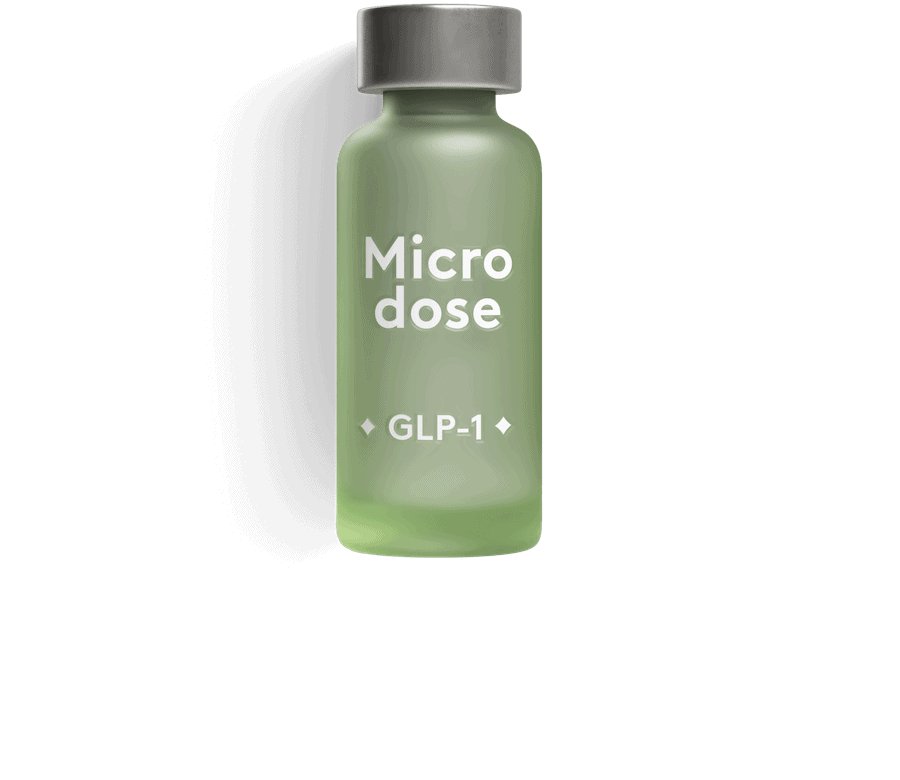


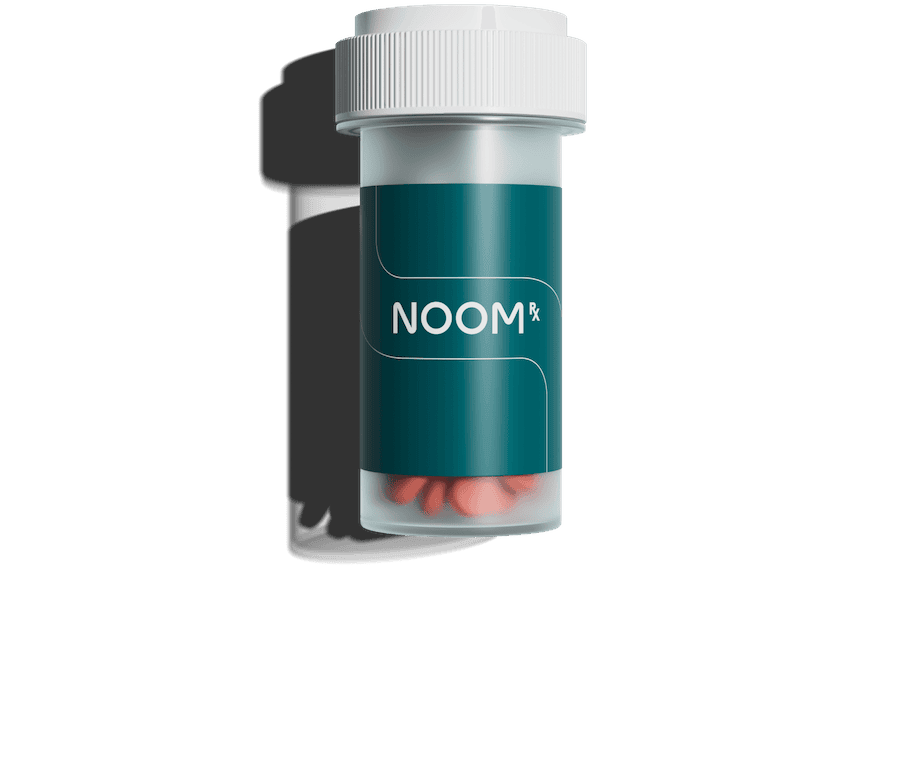

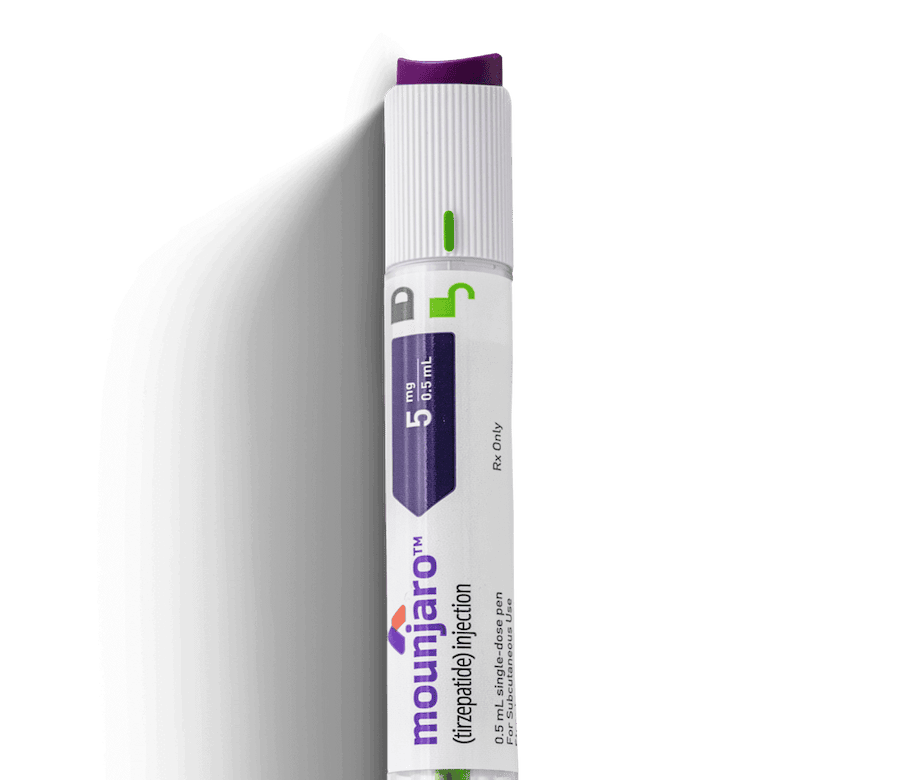
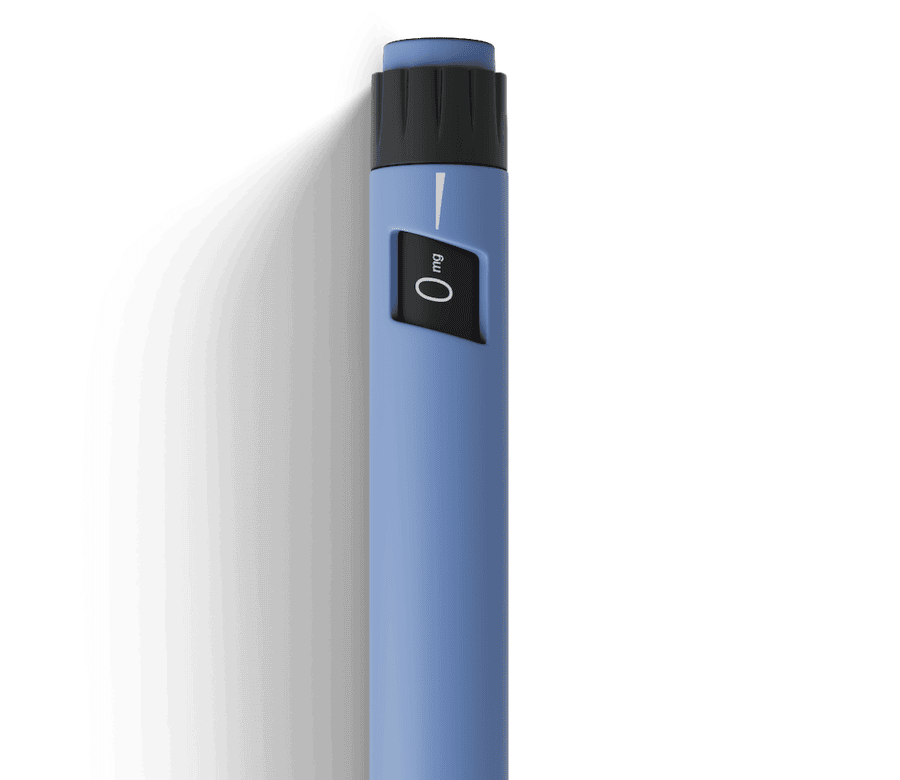





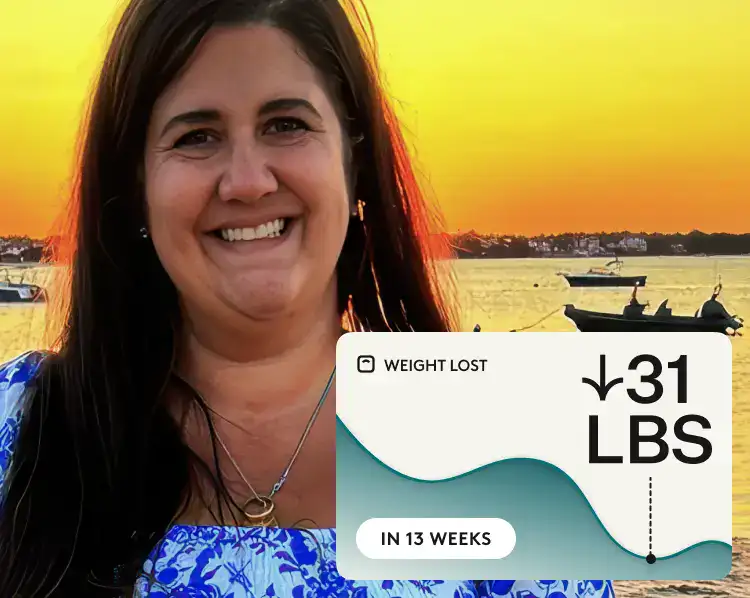

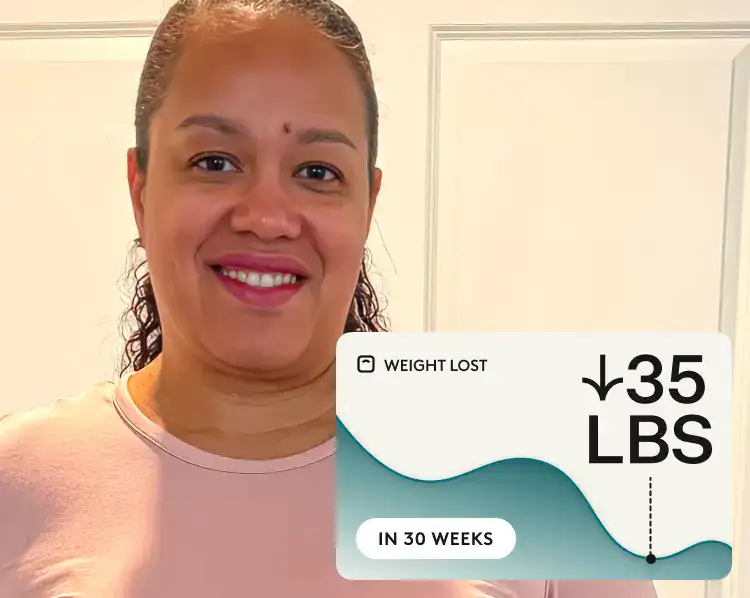




 Meaghan Cameron
Meaghan Cameron
 Noom Team
Noom Team
 Melissa Kay
Melissa Kay


